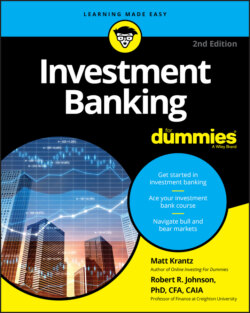Читать книгу Investment Banking For Dummies - Matthew Krantz - Страница 38
Why companies buy other companies
ОглавлениеMaking widgets and selling them for a profit is why most companies exist. Microsoft, for instance, is in the business of making and selling computer software and hardware. So why do so many companies during the course of business wind up buying and selling businesses?
There are many reasons why companies may consider using M&A, including the following:
Getting big fast: Building a business takes time. There are people to hire, distribution to set up, and products to sell. Sometimes the time it takes to get up and running is too long, and the delay gives the rivals with the first-mover advantage an even bigger lead. A great example of a merger done for speed was Microsoft’s 2016 purchase of LinkedIn, a professional social media site. Microsoft bought the company for $29 billion. By buying LinkedIn, Microsoft was instantly a player in the online media business with an already established brand name.
Filling out a product line: Some companies may have been hugely successful in a narrow product line. But to find growth, which investors are always clamoring for, companies may need to fill in some gaps. An old but classic example of using M&A to fill in a product-line hole came in 2001. Leading jelly maker J.M. Smucker bought the Jif peanut butter brand (along with Crisco oil) from Procter & Gamble for $813 million in stock. The deal solved a problem for J.M. Smucker — now the company could sell all the ingredients for a tasty peanut-butter-and-jelly sandwich. Talk about synergy. But at the same time, Procter & Gamble also wanted to reduce its holdings in the food business.
Geographic expansion: Business is going global, and companies need to have a worldwide presence or risk getting beaten by rivals. M&A deals are a quick way to spread into other countries. The biggest proposed M&A deal of 2019 (see Table 2-1) was a great example of a company looking to M&A deals for a product expansion push. Pharmaceuticals firm, Bristol-Myers Squibb, made a nearly $100 billion offer for U.S. biotech company Celgene. Bristol-Myers looks to the deal as a way to get a beachhead in the fast-growing cancer-treatment area.
TABLE 2-1 Biggest U.S. Merger Offers of 2019
| Target | Buyer | Transaction Value ($ billions) | Industry |
| Celgene | Bristol-Myers Squibb | $59.5 | Health Care |
| Raytheon | United Technologies | $93.2 | Industrials |
| Allergan | AbbVie | $86.0 | Health Care |
| SunTrust Banks | BB&T | $29.3 | Financials |
| Viacom | CBS | $20.4 | Communication Services |
Source: S&P Global Markets Intelligence
